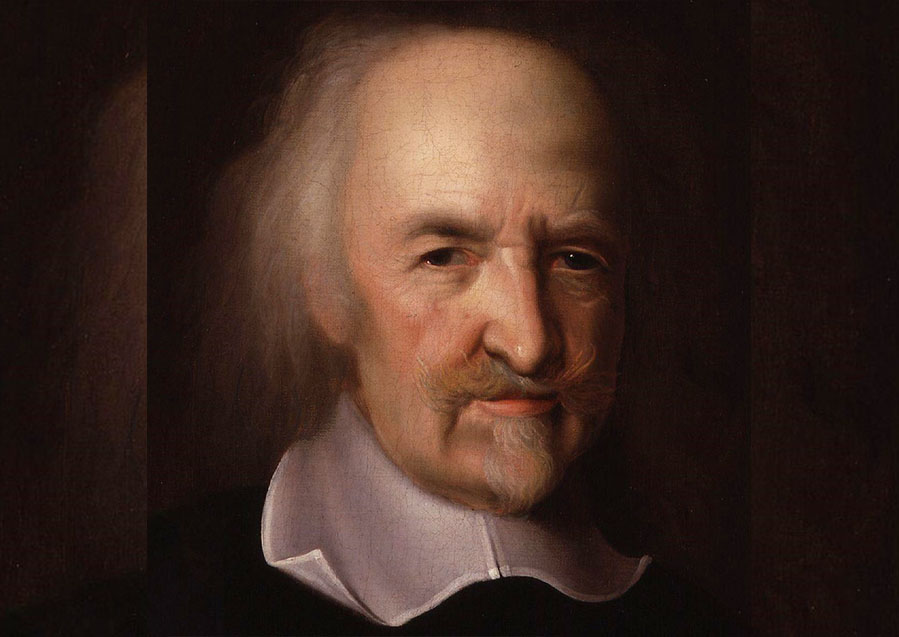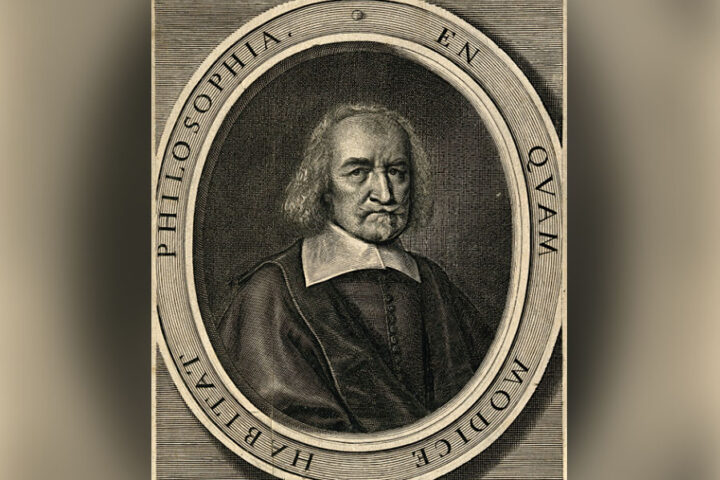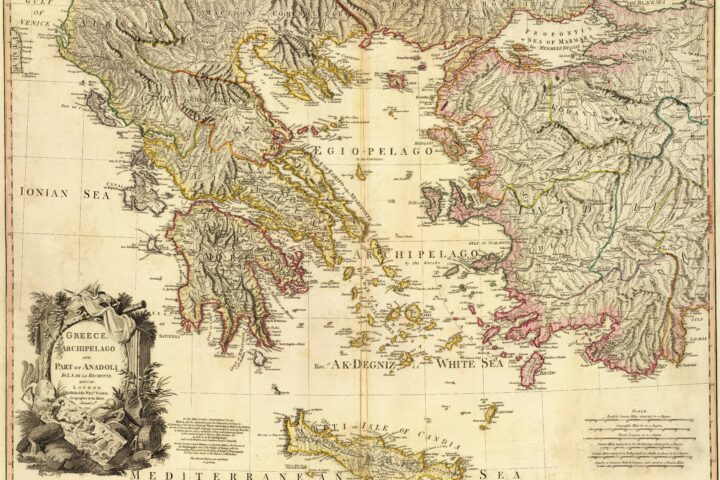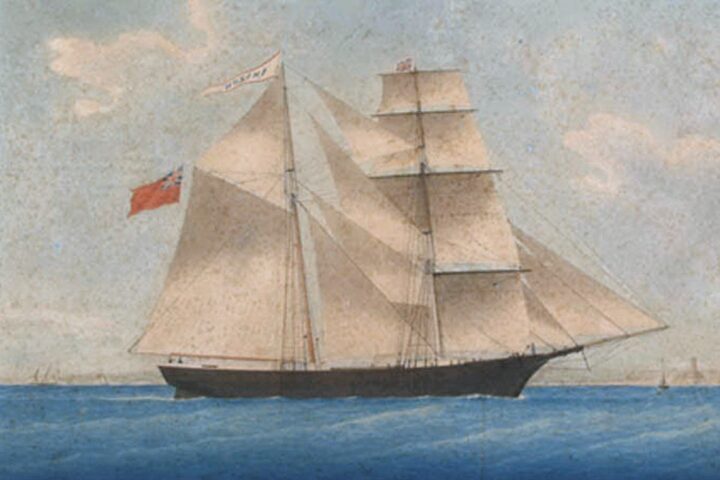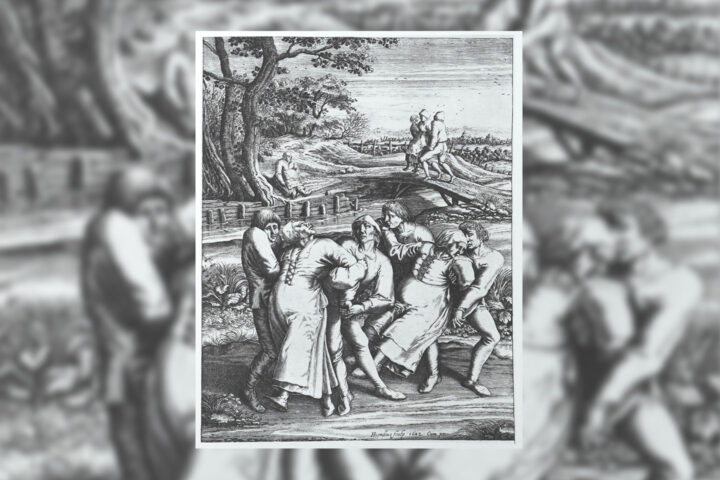Source: Thomas Hobbes, philosopher _ Thomas Hobbes (5 April 1588 – 4… _ Flickr
Thomas Hobbes, an English philosopher from the early 17th century, is best known for his magnum opus, Leviathan. In this magnum opus, Hobbes presents a revolutionary theory of the social contract-a notion whose watershed impact on political philosophy can be felt up to the present day. This paper will thus seek to explore Hobbes’ theory of the social contract in relation to its core concepts, ramifications, and controversies.
The State of Nature: A Hobbesian Nightmare
Hobbes begins with a dismal, oversized description of human nature in the state of nature: an imaginary condition in which people exist in no kind of organized society or government. Here, humans are driven by two principal passions: self-preservation and the desire for power. The passions and the poverty of goods create a state of mutual war of every man against his neighbor, whereby the life of man is solitary, poor, nasty, brutish, and short.
Hobbes paints a bleak picture of life in the state of nature, describing it as a “war of all against all,” where there is no security, no property, and no trust. Life is “solitary, poor, nasty, brutish, and short.” People live their lives with the shadow of an attack, robbery, or even being killed looming over them.
The Social Contract: An Exit from the State of Nature
According to Hobbes, people enter into a social contract to escape the state of nature. Under this contract, an individual sacrifices a right to life, liberty, and property amongst others by delegating it to a sovereign authority. Upon this moment of surrender, the sovereign promises to protect the individual from any source of harm and provides all the features of peace and order needed.
As can be derived, the sovereign power could be one person or a group of people or even an assembly as long as it held absolute authority and its laws were implemented without hindrances. Hobbes called this sovereign power the “Leviathan,” the biblical sea monster said to symbolize the all-powerful state.
The Leviathan: The Absolute Sovereign
Leviathan is, in fact, the backbone of Hobbes’ theory. It possesses all the powers that an absolute ruler should possess; it can make law, administer it, and punish anyone violating it. The power of the Leviathan is absolute, and there is no one other than itself to whom a higher appeal could be made.
Hobbes maintains that the Leviathan’s absolute power is what will give peace and order. If some strong central authority were not established, society would drift back into chaos. Its power could be deemed justifiable through its enabling men from harming each other and through the creation of a healthy society with an optimistic future.
Advantages of the Social Contract
According to Hobbes, the contract is a rational choice that people make. Under that contract, the individual becomes secure, protected, and enabled to enjoy the fruits of civilized society free from violence and oppression.
Also, Hobbes believes that this social contract is the only way for a society to come out from the state of nature into a peaceful and prosperous life. In the absence of Leviathan, individuals have no option but to live with the fear and insecurity of anarchy .
Criticism of Hobbes’ Theory
Although Hobbes’ social contract theory is by many regarded as really influential, the same theory has in most cases received a lot of criticism. This includes the view that Hobbes’ perception of human nature is too negative. For instance, critics have argued that human beings are not absolutely selfish and violent by their very nature, but they can work cooperatively and altruistically under given conditions.
Another criticism is that Hobbes’ theory can be said to abet the absolute power of the sovereign. That is, absolute power can become tyranny and oppression, with criticism that it would be desirable to limit state power and protect individual rights.
But more and more criticism ensues when the absence of the civil aspect of society in Hobbes’ theory surfaces. On this account, the social elements such as families, churches, and voluntary associations argue to be placed at a prominent place in not only the social order but also the protection of the rights of the individuals.
Hobbes’ Social Contract Theory: A Comparative Analysis
Although Hobbes’ social contract theory provides a very interesting framework for the understanding of origins and purpose of governments, there is more to be said about it. To get a better understanding of this social contract theory, we need to examine it against other great social contract theories, like John Locke and Jean-Jacques Rousseau.
Hobbes vs. Locke: A Clash of Visions
Another influential English philosopher, John Locke also formulated a theory of social contract, though his vision was quite different from Hobbes’. This is because both theorists had the opinion that people in the state of nature are motivated by self-preservation; however, Locke added to this another dimension that is natural rights given to mankind with the rights of life, liberty, and property.
Unlike Hobbes, Locke believed people in the state of nature were rational and cooperative enough to enter into contracts, solve conflicts amicably, and devise laws by which they would live. Still, a common authority enforcing these rules was inadequate for peace and stability within the community.
These are resolved by entering a social contract between individuals to form a government. The primary role of the government is to protect the rights of individuals-which, theoretically speaking, would be granted to them through their rights in nature-and to establish order. Unlike Hobbes’ Leviathan, Locke’s government is bound in authority. Authority derives from the governed if and only if the government has discharged its obligations. Due to this provision, its authority may be exerted for a limited time span upon failure to discharge its duties.
Hobbes vs. Rousseau: The General Will vs. the Leviathan
French philosopher Jean-Jacques Rousseau was the third to contribute to the theory of the social contract. As with Hobbes and Locke, Rousseau believes that in the state of nature, people act from selfish motives; but although they are less than affectionate and full of love for themselves, humans can also be full of mercy and pity.
Generally, the general will form the nucleus of Rousseau’s theory. The general will is the collective will of people that provides meaning to their common good. Once part of this social contract, individuals commit themselves to submit themselves to the general will. On its part, a government is supposed to enact and enforce the general will.
Unlike Hobbes’ Leviathan, the form of government by Rousseau is not the absolute ruler. Rather it is a democracy wherein the government derives authority and legitimacy from the people. It is supposed to act in the best interest of the people and can be recalled if these conditions are unfulfilled.
Comparison and Contrast of the Theories
While all the three thinkers, Hobbes, Locke, and Rousseau, develop social contract theories, their vision is still quite different from one another. Hobbes in his theory describes the ultimate need for a strong, central authority in order to keep the people in line and avert war. According to Locke, the state that should safeguard rights of every citizen should be limited in terms of power. Finally, Rousseau develops his theory by especially underlining the prominence of the general will and representative democracy.
One of the major differences among these theories relates to their respective views on human nature. Hobbes said that human beings are man by nature selfish and violent in his behavior. Locke instead portrayed the human being as rational and capable of cooperation. Rousseau said that humans are selfish as well as compassionate by nature.
Another important concept is their view of government. Hobbes’ Leviathan is an absolute ruler with unlimited power. Locke’s government is limited in its power and derives its authority from the consent of the governed. Rousseau’s government is a representative democracy that acts in the best interests of the people.
The Legacy of Social Contract Theory
Indeed, social contract theory has profoundly influenced political philosophy and continues to be debated today. It has been used in justification of everything from absolute monarchies to democracies. In all these theories though, the core similarity lies in the idea that people give up a part of their natural rights for protection by a civilized society.
It is most relevant today as a theory to explain what relationship exists between the individuals and the state. Therefore, it raises questions on the nature of governance and the rights of those citizens. Some argue that the history of different periods-including how the components came to be themselves-may be contested; however, the social contract itself becomes the foundational thought to one’s political life.
Sources:
- https://www.studysmarter.co.uk/explanations/history/european-history/thomas-hobbes-and-social-contract/
- https://www.lawteacher.net/free-law-essays/contract-law/the-social-contract-theories-of-thomas-hobbes-and-john-locke.php
- https://www.britannica.com/topic/social-contract
- https://blog.ipleaders.in/what-you-need-to-know-about-the-social-contract-theory/

